Best overdrive pedals: Find new inspiration with the best drive pedals for guitar
Some of the best examples of a key component of any guitar player’s rig - the overdrive pedal
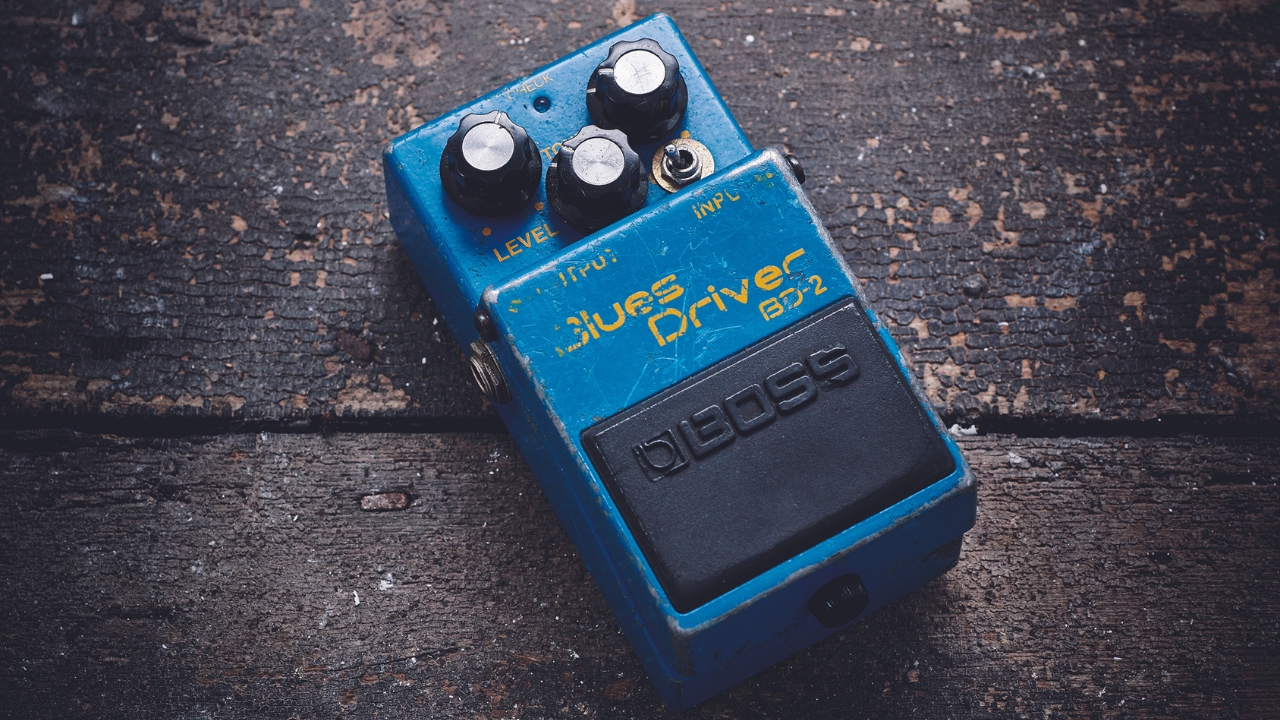
1. The quick list
2. Best overall
3. Best Klon clone
4. Best low gain
5. Best amp style
6. Best dual overdrive
7. Best budget overdrive
8. More options...
9. Buying advice
10. How we choose products
Pretty much every guitarist's first port of call when it comes to effects, the humble drive pedal won’t change your sound entirely, but instead adds some extra flavour to your base. The best overdrive pedals will allow you to saturate your tone and push your amp harder, whether you want more sustain, more grit, or more volume.
As one of the guitar’s most popular effects, there are a million different pedals out there to buy, and plenty of ways to utilize them to create your perfect tone. You can use one to push your tube amp harder, giving breakup at lower volumes. Or you can run it on a solid-state clean channel to imitate the sound of a driven amplifier. Some players just use it to add a little extra variety to the sound of their amplifier, or as a boost when it comes to laying down some lead guitar.
However you want to use your drive pedal, it’s always a difficult choice to pick the right one with so many out there. Lucky for you, we’ve played hundreds of them in our time, and have used our years of experience to put together this guide for you. If you want to learn more before you buy, check out our expertly curated buying advice section, otherwise keep scrolling for our top picks.
Best overdrive pedals: The quick list
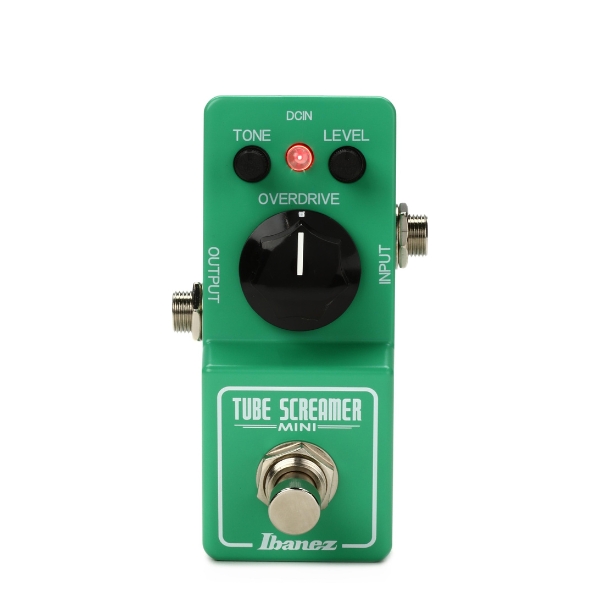
Probably the most popular overdrive pedal ever made, the mid-heavy Tube Screamer is a staple on pedalboards worldwide, and this mini version will fit on pretty much anything.
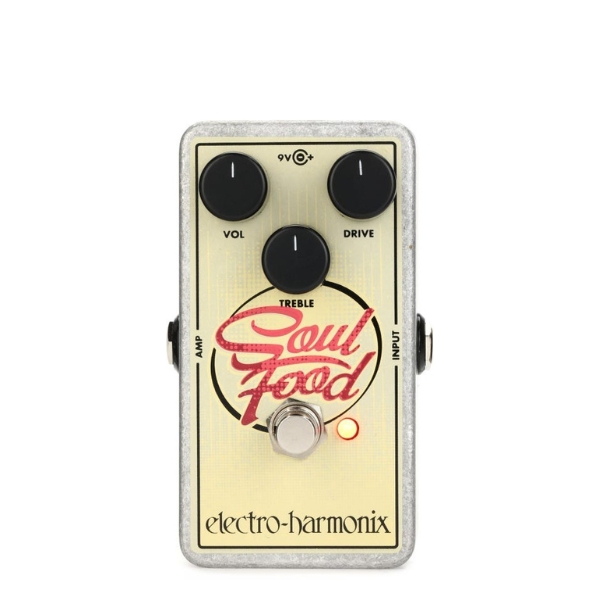
We've had the EHX Soul Food on our 'board for well over five years now and for our money, it's one of the best value transparent 'Klon'-style overdrives you can buy today.
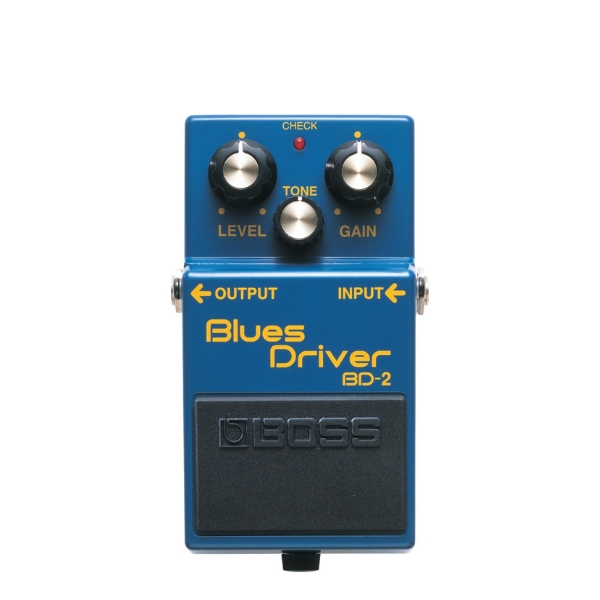
Despite its name, the Boss BD-2 Blues Driver can do way more than just Blues tunes. One of the most versatile drive pedals you can buy, it stacks beautifully and is built ultra-rugged.
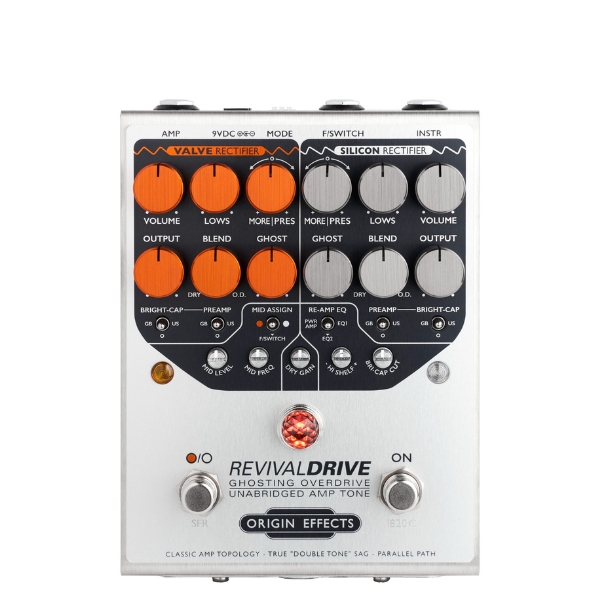
If you're unhappy with the sound of your amp, the Origin Effects RevivalDrive will completely change the characteristics of your current amp, with both tube and solid-state sounds.
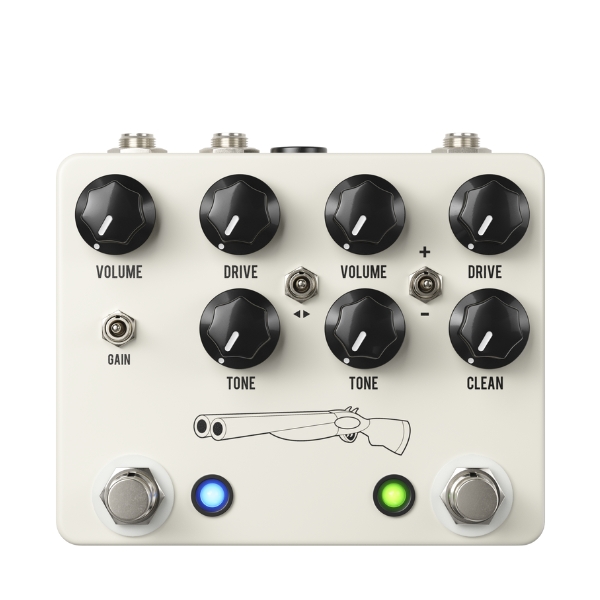
Giving you two flavours of overdrive in one unit, the JHS Double Barrel combines the low gain/boost of the JHS Morning Glory and the higher saturation sounds of the JHS Moonshine.
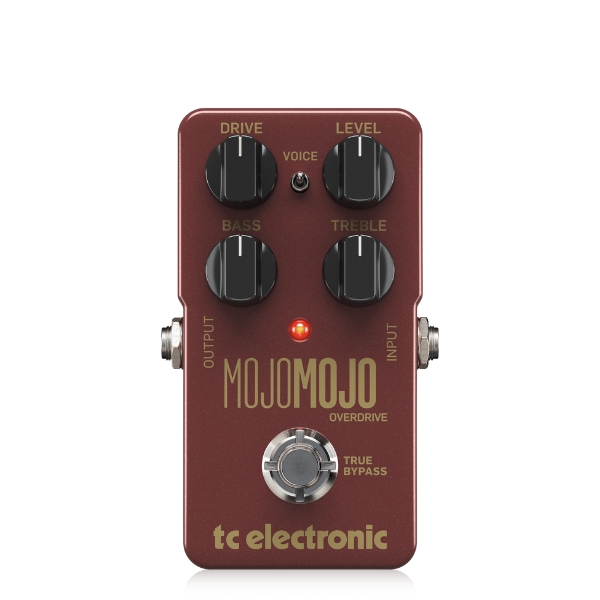
If you need a budget drive for your 'board, TC Electronic's Mojomojo is a great choice, packing loads of options into a low-cost unit. All we can say is it's good enough for Paul Gilbert...
Best overdrive pedals available today
MusicRadar's got your back
Here you'll find full writeups and review of all the best drive pedals available right now. The majority of these have been personally tested by our writing team, so you can rely on our recommendations.
Best overall
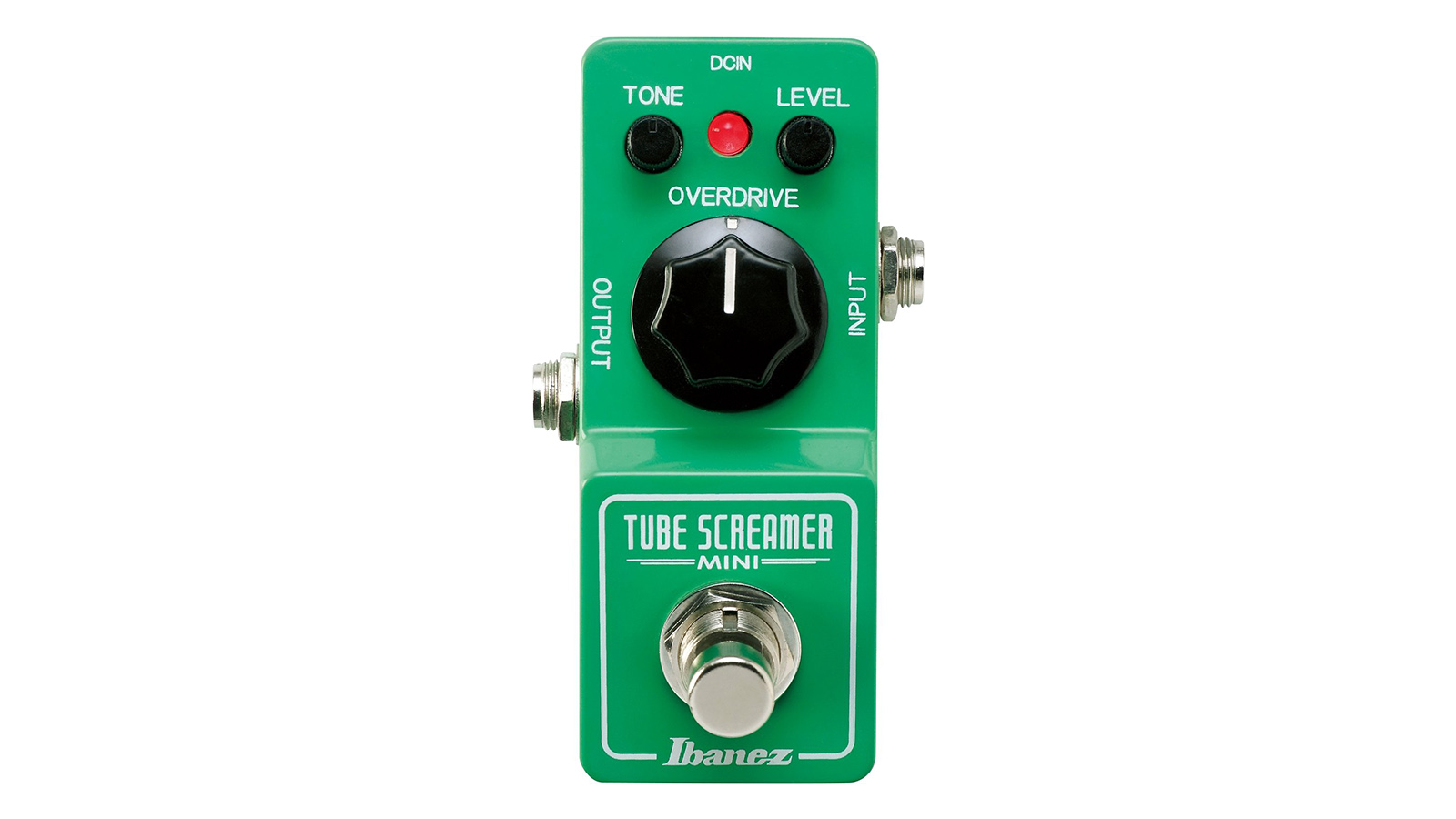
Specifications
Reasons to buy
Reasons to avoid
The adorable TS Mini is made in Japan and packs the TS808's coveted JRC4558D IC chip. You know what to expect from a TS, and the Mini will get your mids humping and your single coils beefing up with the best of 'em.
It's not the smoothest Screamer we've ever heard, but it is faithful to the '80s incarnation in that it compresses up a treat and cuts the low end a little. Ramp up your amp, cut the TS Mini's gain, and up the volume, and it gives distorted tones extra attack – and that's possibly its greatest strength.
We love this mini version as it'll fit on pretty much any guitarist's pedalboard with a minimum of fuss, and it's incredible value for money too. Those with large hands may find the small knobs hard to manipulate, but this is typically a set-and-forget kind of pedal.
Read the full Ibanez Tube Screamer Mini review
Best Klon clone
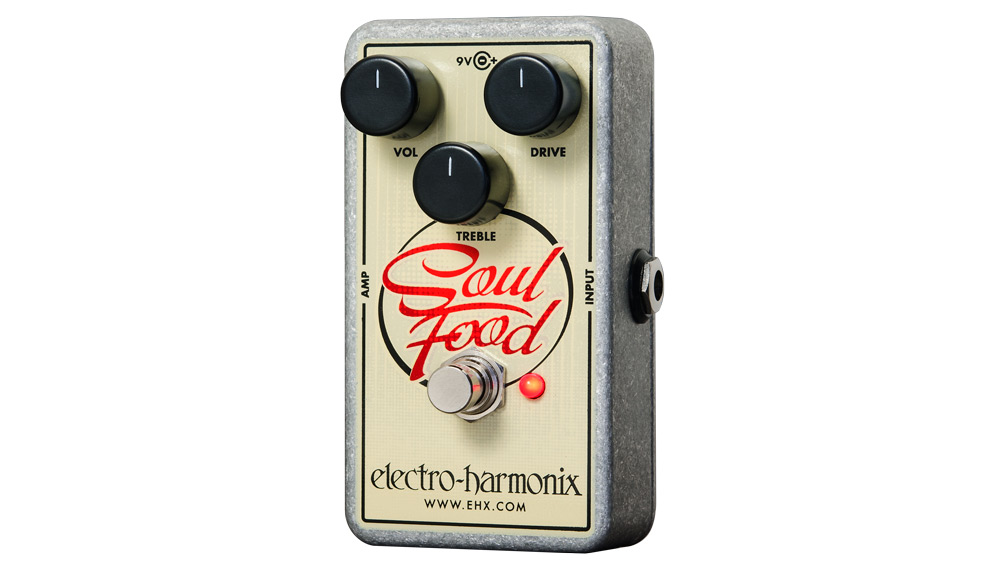
Specifications
Reasons to buy
The Soul Food is EHX's take on the transparent overdrive of the Klon Centaur, and an excellent complement to a valve amp. The Klon is beyond the means of most of us, but if you're looking for that type of touch-sensitive, transparent overdrive and boost that keeps your core sound intact, the Soul Food delivers it.
We have had one of these on our pedalboard for years now, and just like the original Klon, it features a small bump in the low-mids and a range of gain from clean boost up to mid-range drive. Use it as an always-on clean boost or as a low-gain drive pedal in its own right, and it will deliver.
We love pairing it with other drive pedals for some clear yet saturated tones and it sounds great after a POG, another EHX favourite. It's comparatively cheap, incredibly robust, and endlessly versatile, making it one of our all-time favourite overdrive pedals.
Read the full Electro-Harmonix Soul Food review
Best low-gain
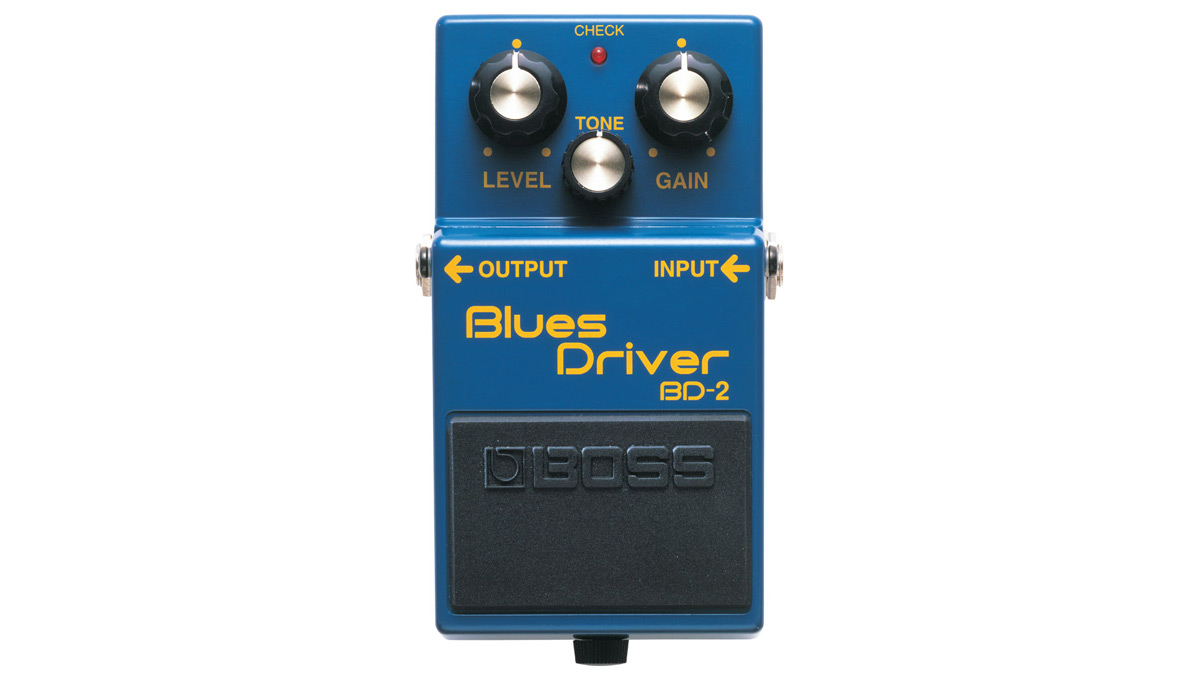
3. Boss BD-2 Blues Driver
Our expert review:
Specifications
Reasons to buy
Reasons to avoid
An old favourite, the BD-2 is fantastic for just boosting an amplifier that’s working and giving it a little bit more edge. But it’s definitely an overdrive pedal, not a clean boost because a certain amount of that drive tone is being created in the pedal itself. It’s very warm and very natural.
It takes the spirit of Boss's much-loved OD-1 and SD-1, but adds gain, edge, and bite to emulate a cooking valve amplifier. The Blues Driver responds well to picking dynamics, too.
It's famed for pairing well with other boost and distortion pedals, making it a versatile option for stacking stompboxes to get ever more saturated sounds. Don't let the name fool you, the BD-2 is capable of much more than just Blues-tones.
Best amp-style
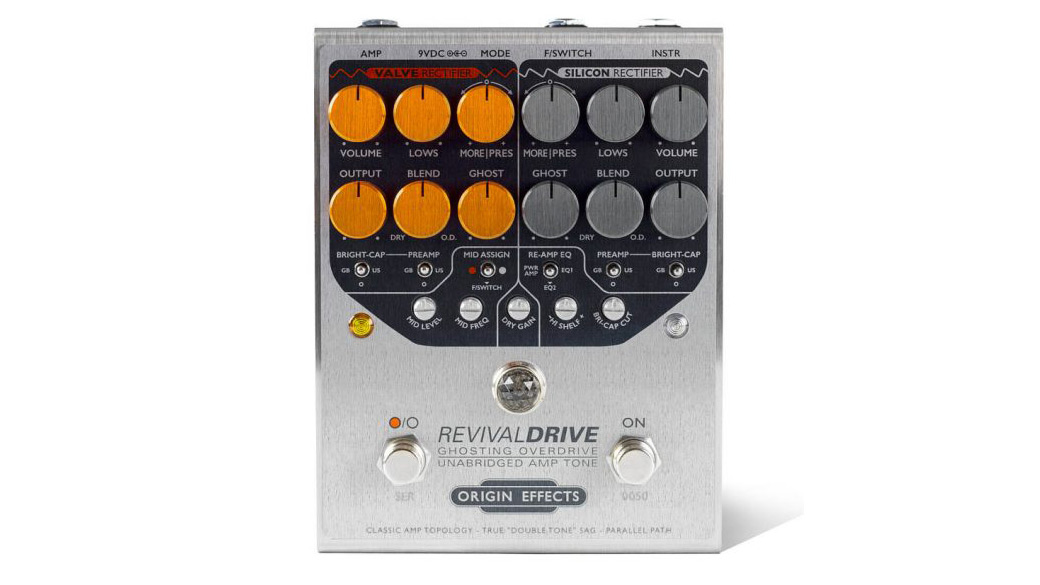
Specifications
Reasons to buy
Reasons to avoid
With the RevivalDrive, Origin Effects aimed at delivering the sound and circuit behaviour of a classic amp in a fully variable and controllable format. The resulting dual-channel pedal has one bypass footswitch and a second to toggle between the channels. Each have an identical set of controls but while one channel is based on a valve rectifier, the other has a solid-state (Silicon) rectifier for the different responses associated with each.
The two channels are sufficiently different, the Silicon channel having a tighter, more aggressive feel to the squishier sag of the Valve channel. With an ability to mimic a whole range of amps, notably Marshall and Fender models, or provide overdrive that’s perfectly tailored to be an extension of your clean amp tone, it will give you a proper cranked vintage amp sound at practical stage and home levels whatever amp you are using.
Read the full Origin Effects RevivalDrive review
Best dual overdrive
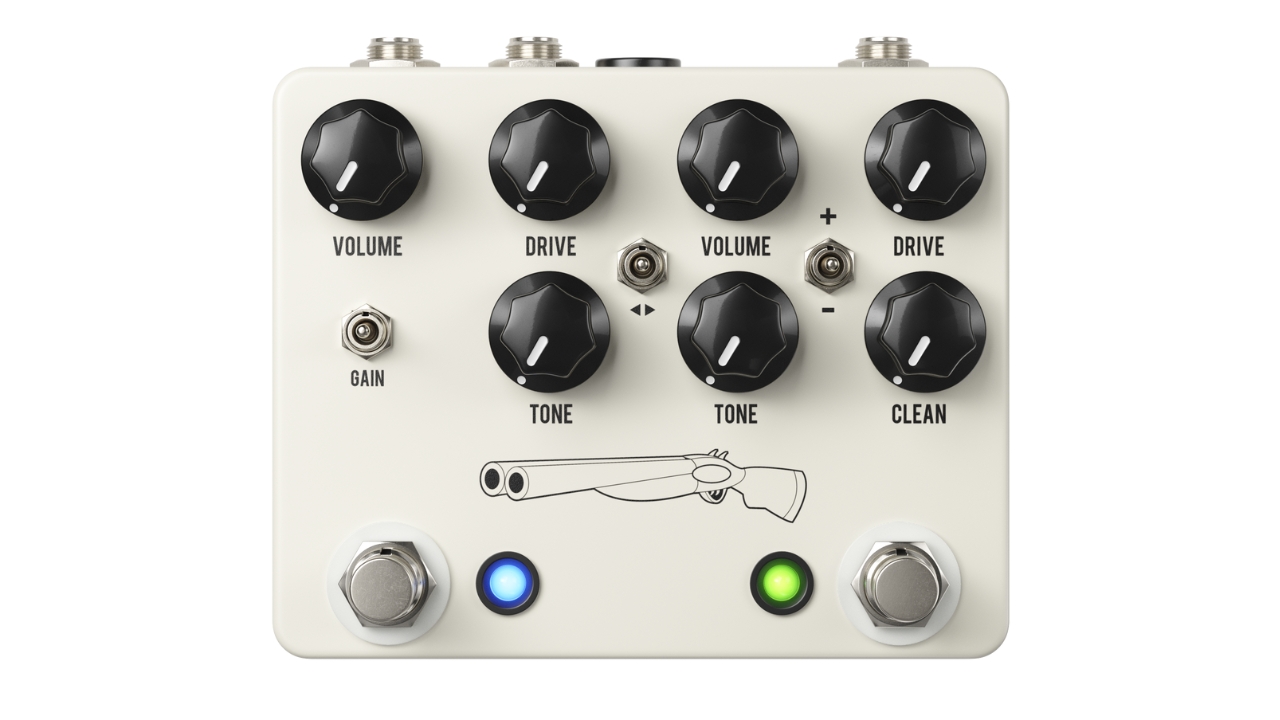
5. JHS Double Barrel V4
Our expert review:
Specifications
Reasons to buy
Reasons to avoid
Despite overdrive being, fundamentally, a simple concept there is infinite variation possible from a single pedal. JHS Double Barrel proves this, by packing in two of the company’s famous individual pedals to give the user a plethora of tone-shaping potential to choose from.
Simple boosting is possible from the Morning Glory V4 side, which adds a transparent push and increased dynamism to your tone without colouring it. On the Moonshine V2 side, there is tube-like saturation which responds well to your picking and guitar’s controls.
Best budget overdrive
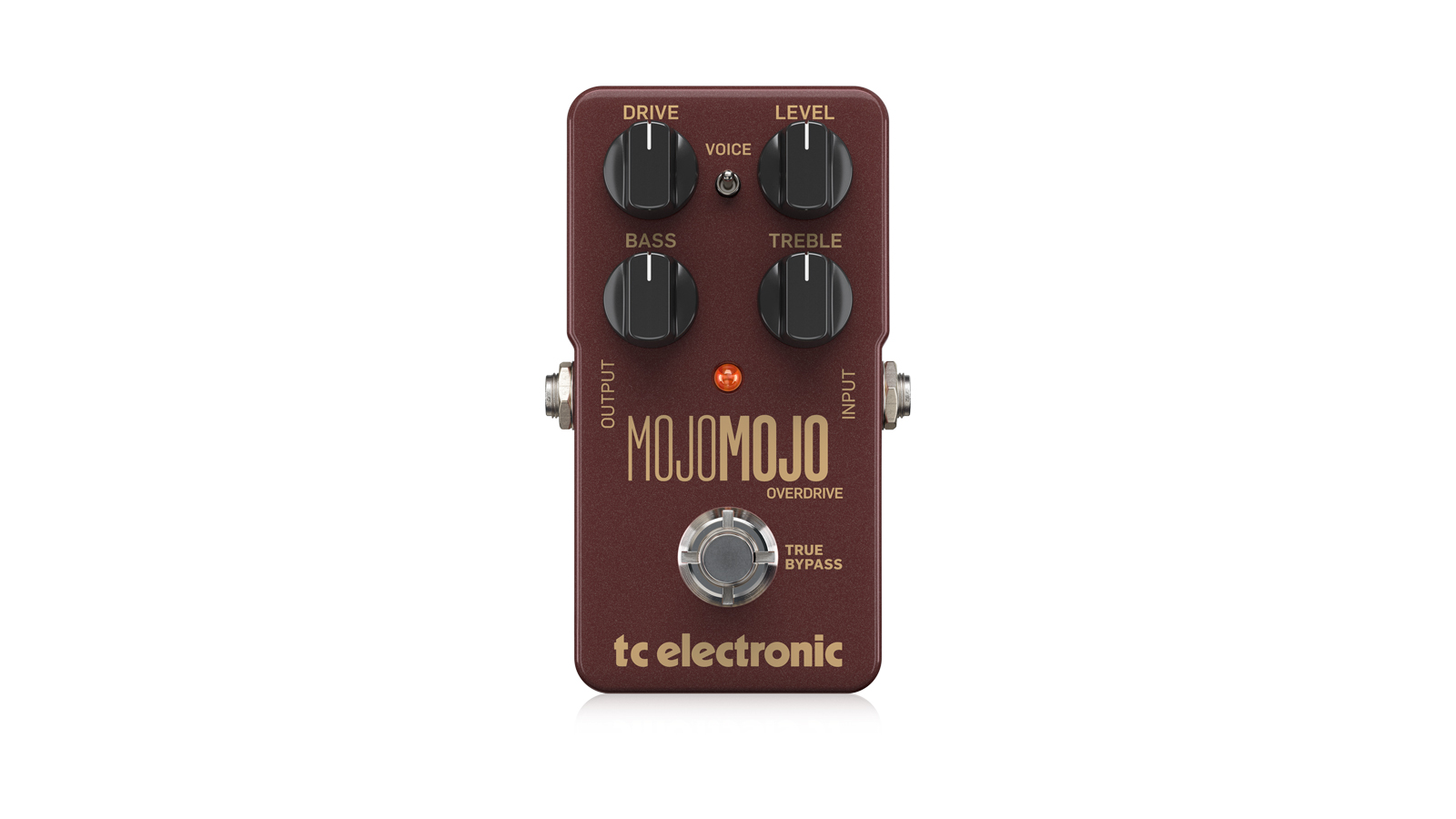
6. TC Electronic Mojomojo
Our expert review:
Specifications
Reasons to buy
Reasons to avoid
While the TC Electronic Mojomojo might sit at the more budget end, it’s still absolutely one of the best overdrive pedals out there. It’s been used by none other than virtuoso Paul Gilbert, and offers a dynamic, smooth overdrive with lots of headroom. It won’t give you massive amounts of gain on tap, but, if you’re running it through a clean amp, it does give you a very nice cranked tube amp sound.
The pedal has been designed in such a way that it increases the voltage sent into it, to increase headroom which makes it super responsive to your playing - all the nuances in your picking hand will shine through, and it will react really well to your guitar’s volume knob.
There are bass and treble controls for tone sculpting, as well as gain and volume knobs so you can dial in exactly what you want it to do. There’s even a voicing switch that eases off on some of the bass frequencies - ideal for using with darker sounding guitars.
Read the full TC Electronic Mojomojo review
More options...
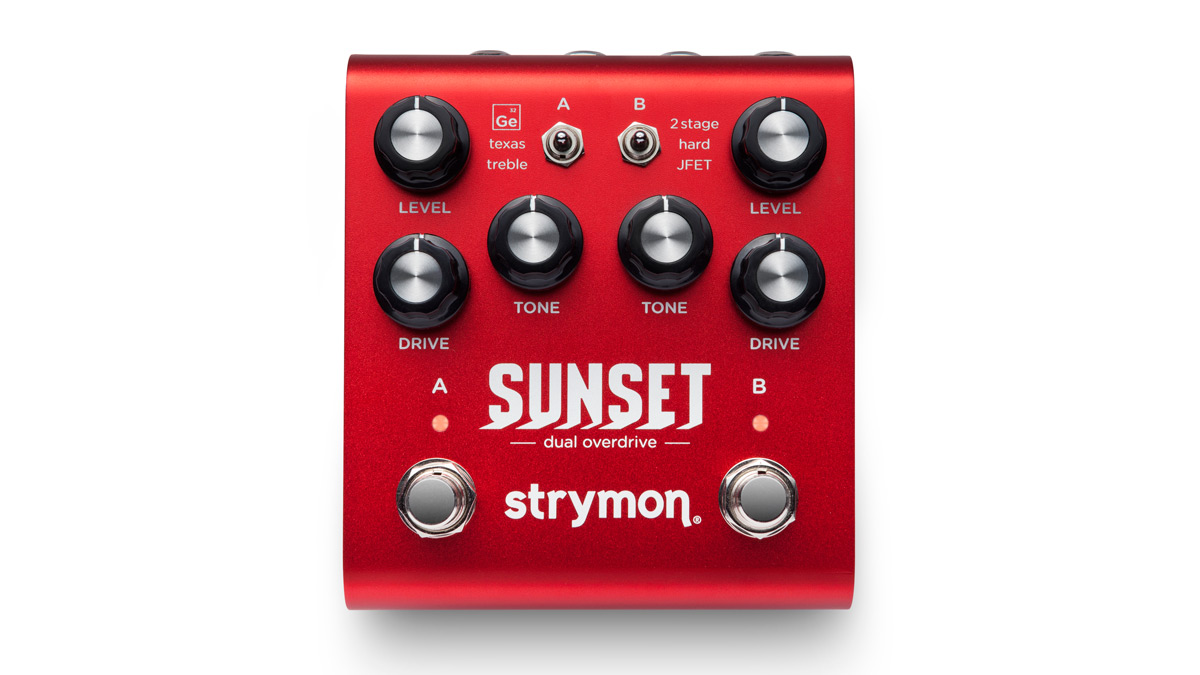
Specifications
Reasons to buy
Reasons to avoid
They say you get what you pay for, and with Strymon pedals that seems to ring true. Anticipating seemingly every user need, the Sunset not only has three distortion options with different topologies, but also three boost options and flexible routing that allows for either boost or drive first.
The two-stage drive cascaded into the ‘Texas’, the company’s take on a Tube Screamer, which is particularly powerful... and fun. When compared side by side with a real tube high-gain amplifier, it’s hard to tell which is real and which is the pedal – there’s certainly not even a whisker of dreaded digital ‘fizz’.
Read the full Strymon Sunset review
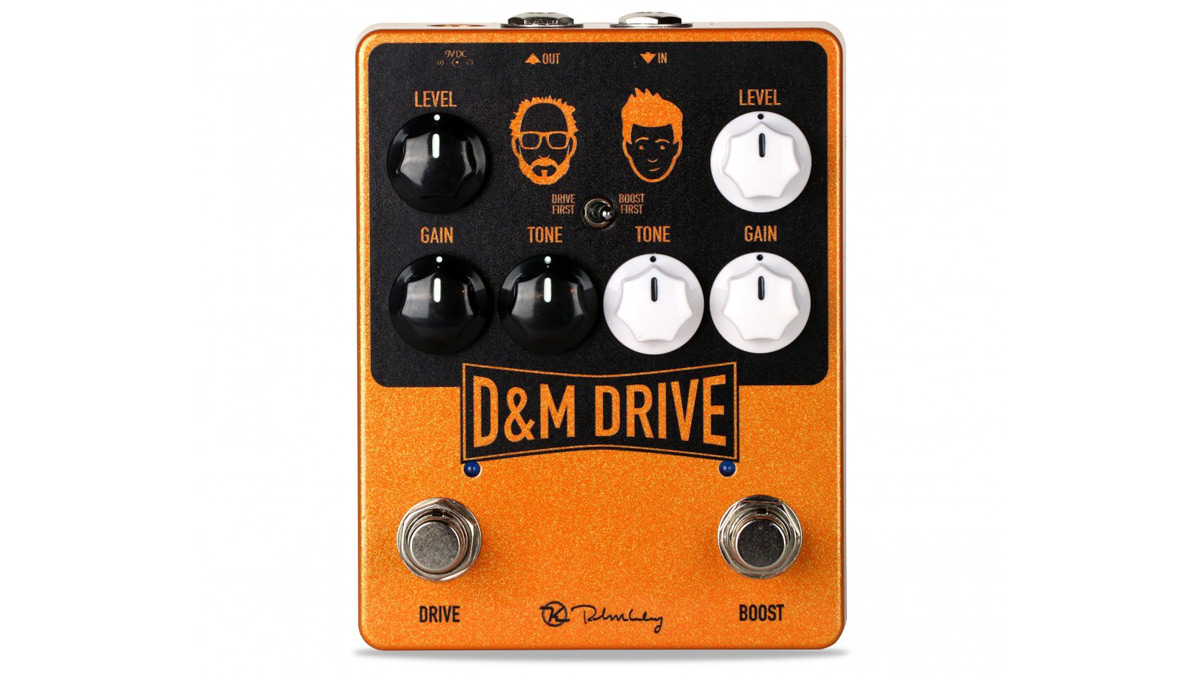
Specifications
Reasons to buy
Reasons to avoid
That Pedal Show's Mick Taylor and Daniel Steinhardt's signature pedal with Keeley Electronics is a dual-format design featuring overdrive and boost sections that can be used individually or stacked – with the option of putting the boost before or after the drive.
Extra flexibility comes from input and output jacks that will take TRS cables to allow the two circuits to be split, so each can be used in a different loop of a switching system, effectively having two standalone pedals. Stacking the two sections together offers more opportunity - both routing options have their relative merits, but we really like the way that the Boost before the Drive ups the saturation quota.
Read the full Keeley D&M Drive review
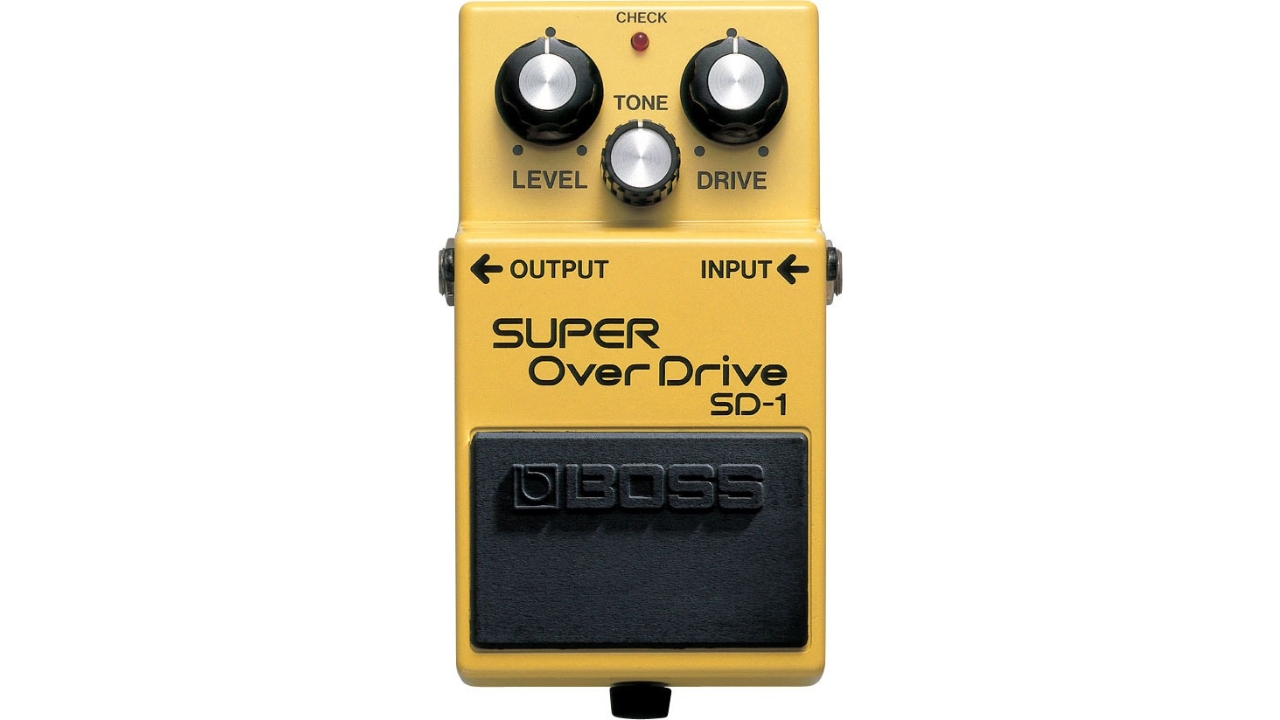
9. Boss SD-1 Super Overdrive
Our expert review:
Specifications
Reasons to buy
Reasons to avoid
One of the original compact overdrive pedals, the Boss SD-1 has been utilized by guitarists such as Jimmy Page, John Frusciante, Josh Homme, Dave Gilmour, Johnny Greenwood, and many more. It’s simple to use, is great value for money, and delivers a wide range of outstanding drive tones.
The SD-1 uses an unequal amount of diodes, which results in an asymmetrical tone that cuts through. This tube-like quality makes it incredibly versatile, whether you’re pushing a clean-ish amp for blues lead tones or running it in the drive channel of a cranked Marshall for super saturated metal tones.
Of course, Boss’ trademark rugged build quality is here too, so you’ll find even original models from the 80s are still live and kicking. No matter how much you step or stomp on it this pedal will keep giving out great tone.
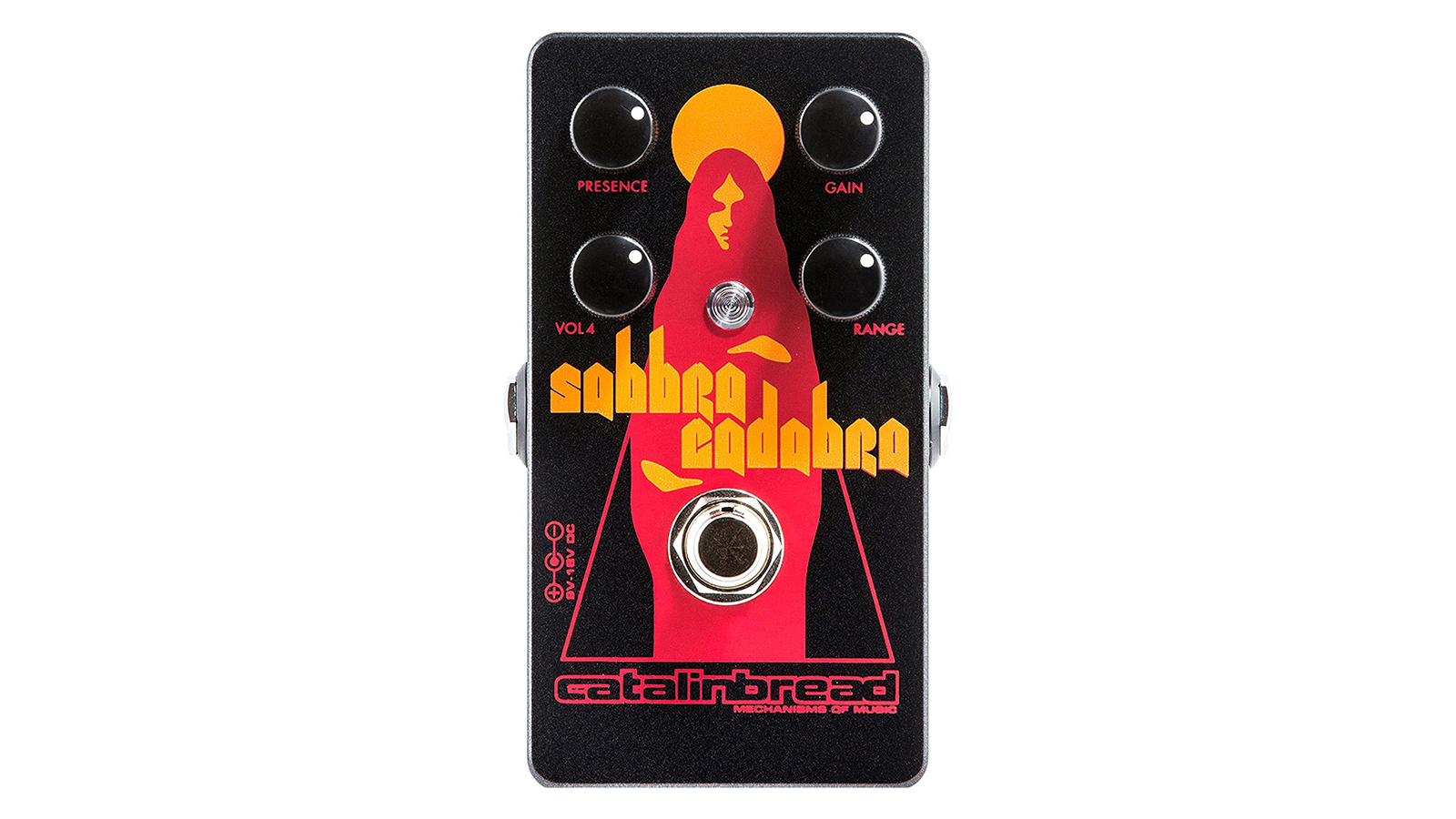
10. Catalinbread Sabbra Cadabra
Our expert review:
Specifications
Reasons to buy
Reasons to avoid
No prizes for guessing which specific genre of player the Catalinbread Sabbra Cadabra will appeal to. This awesome-looking pedal is essentially a Rangemaster-based treble booster, with some unique tricks of its own. Volume, presence and gain are all pretty standard, but with the additional range control you have the ability to boost either high-end frequencies or the entire spectrum.
We find it works best when paired with a detuned guitar and high gain tube amp, and we unashamedly had all the fun in the world churning out those iconic riffs laden with that dense, raucous tone we all know and love.
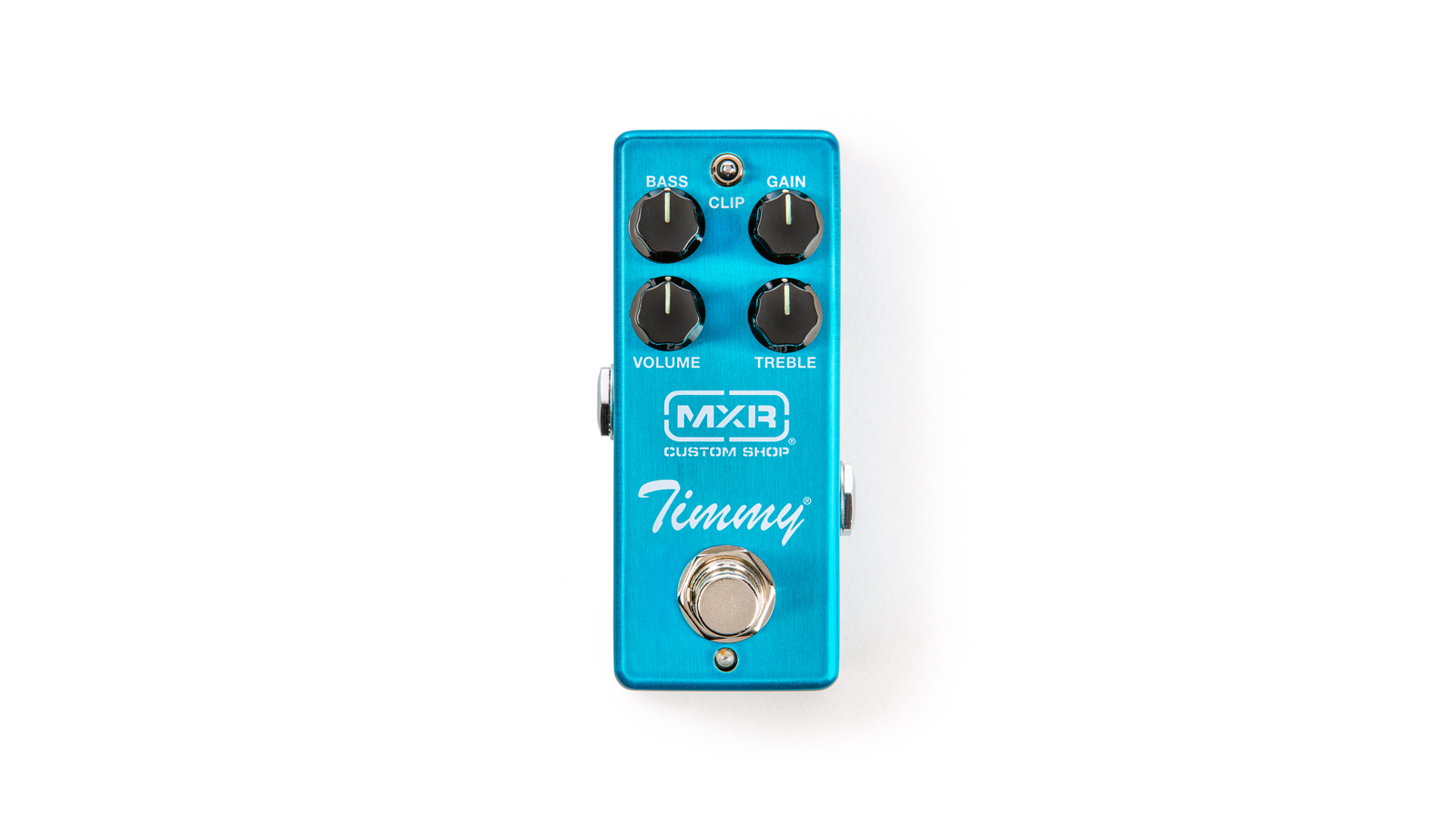
11. MXR Custom Shop Timmy Mini overdrive pedal
Our expert review:
Specifications
Reasons to buy
Reasons to avoid
This is based on the famous Paul Cochrane Timmy overdrive pedal - Paul even helped MXR with the design. These are known for being super transparent and allowing your guitar’s fundamental tone to really shine through. The originals however can be hard to come by, but this MXR version does a great job of replicating that sweet, low-gain boost, in a compact casing.
If you’re looking to drive a tube amp without colouring your sound, then this could be one of the best overdrive pedals for you. The EQ has been designed in a clever way too - the bass and treble are cut-only, so you’re not adding in frequencies but keeping your tone ‘truer’, plus the controls are wired pre- and post-overdrive to help maintain your low end, and smooth out the top.
The three-way clipping switch provides you with even more options and different headroom settings. Overall, the MXR Timmy Mini is a really good take on a classic pedal - it keeps everything that players love about the original, and houses it in a smaller casing.
Read the full MXR Timmy review
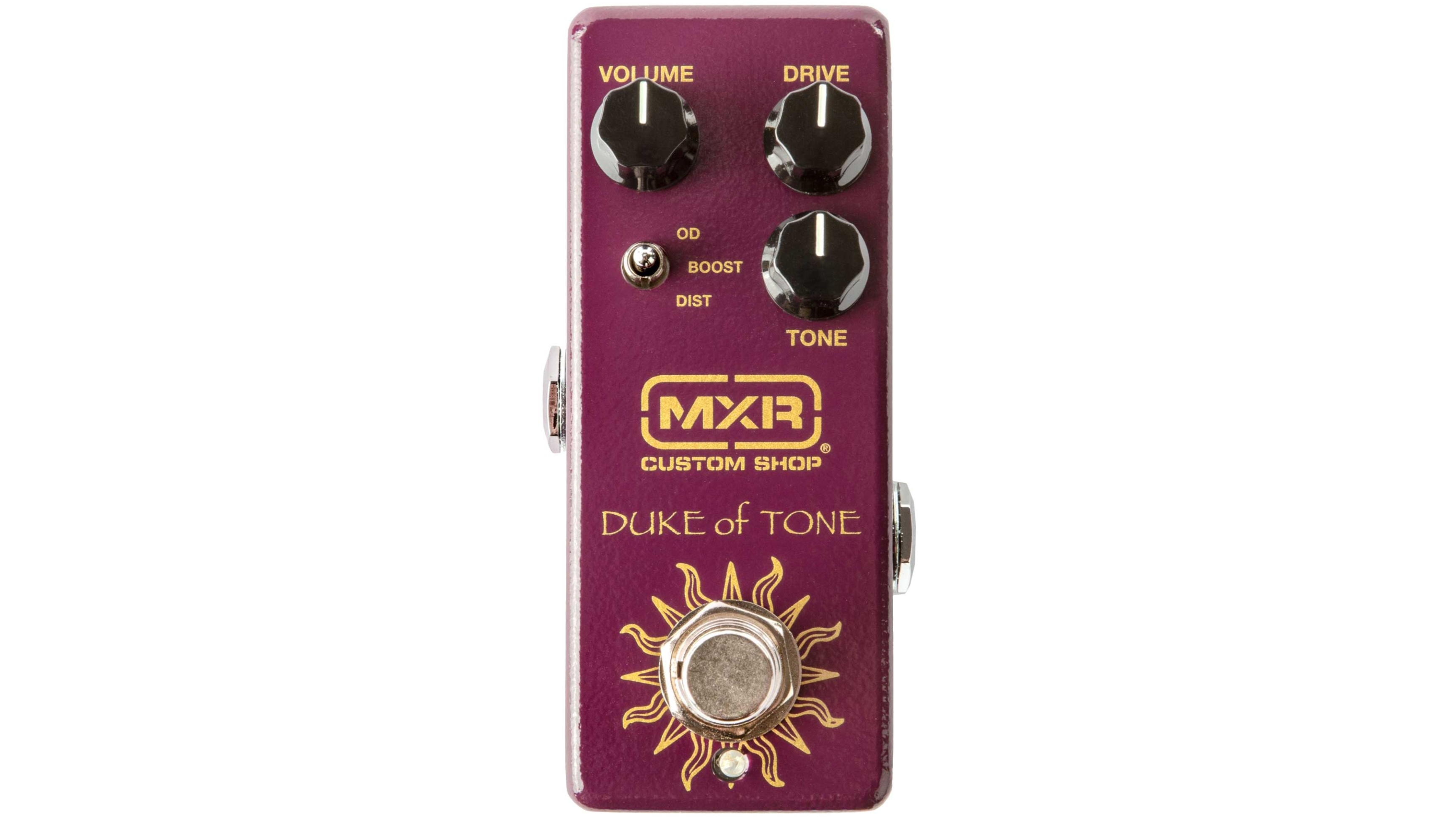
12. MXR Duke Of Tone
Our expert review:
Specifications
Reasons to buy
Reasons to avoid
There are very few pedals that go on to reach mythical status, and while most players would instantly think of Bill Finnegan's Klon Centaur, we count the Analogman King Of Tone and, of course, by extension, its heir, the Prince Of Tone among this very exclusive list.
Anyone who has tried to get their hands on one of these pedals knows that it's pretty much impossible - unless you fancy joining a three-year waiting list or paying an astronomical amount over the asking price for one. Luckily, MXR has the answer - the Duke Of Tone.
Partnering with Analogman's Mike Piera, MXR is making the regal tone of this prized pedal accessible to millions of players - and in a smaller, more pedalboard-friendly format! Delivering a warm, amp-like drive that brings out the best of your playing, the Duke Of Tone is ideal for those seeking the sound of this once unobtainable pedal.
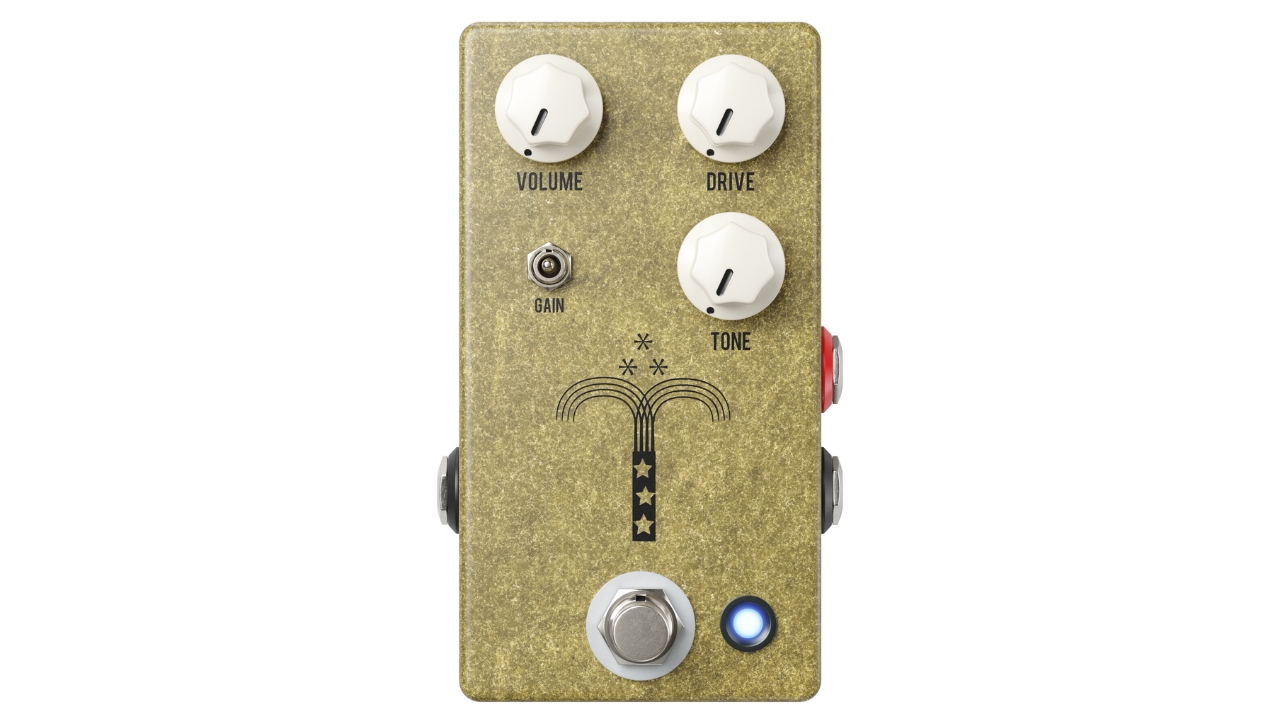
13. JHS Morning Glory V4
Our expert review:
Specifications
Reasons to buy
Reasons to avoid
Based upon the classic Marshall Bluesbreaker circuit, the JHS Morning Glory is a transparent overdrive that’s designed to deliver articulate guitar tones. Designed for those who love their amplifier’s base tone, this useful pedal will also play nicely with others on your pedalboard.
Using the Morning Glory is like adding a bit of salt and pepper to your meal, when paired with a great-sounding amp it adds extra volume and drive as you need, all without changing the inherent characteristics of your setup. It also goes well with a variety of fuzz pedals, other overdrive pedals, and distortion pedals, making it a great choice for stacking.
The gain toggle switch adds further versatility, opening up more low-end and gain if you need it. With a separate footswitch, you can make this switchable without having to reach down to the pedal too. On the side a hi-cut switch lets you tame some of that high-end sizzle when you need it to, great with more treble-heavy single coil pickups.
Best overdrive pedals: Buying advice
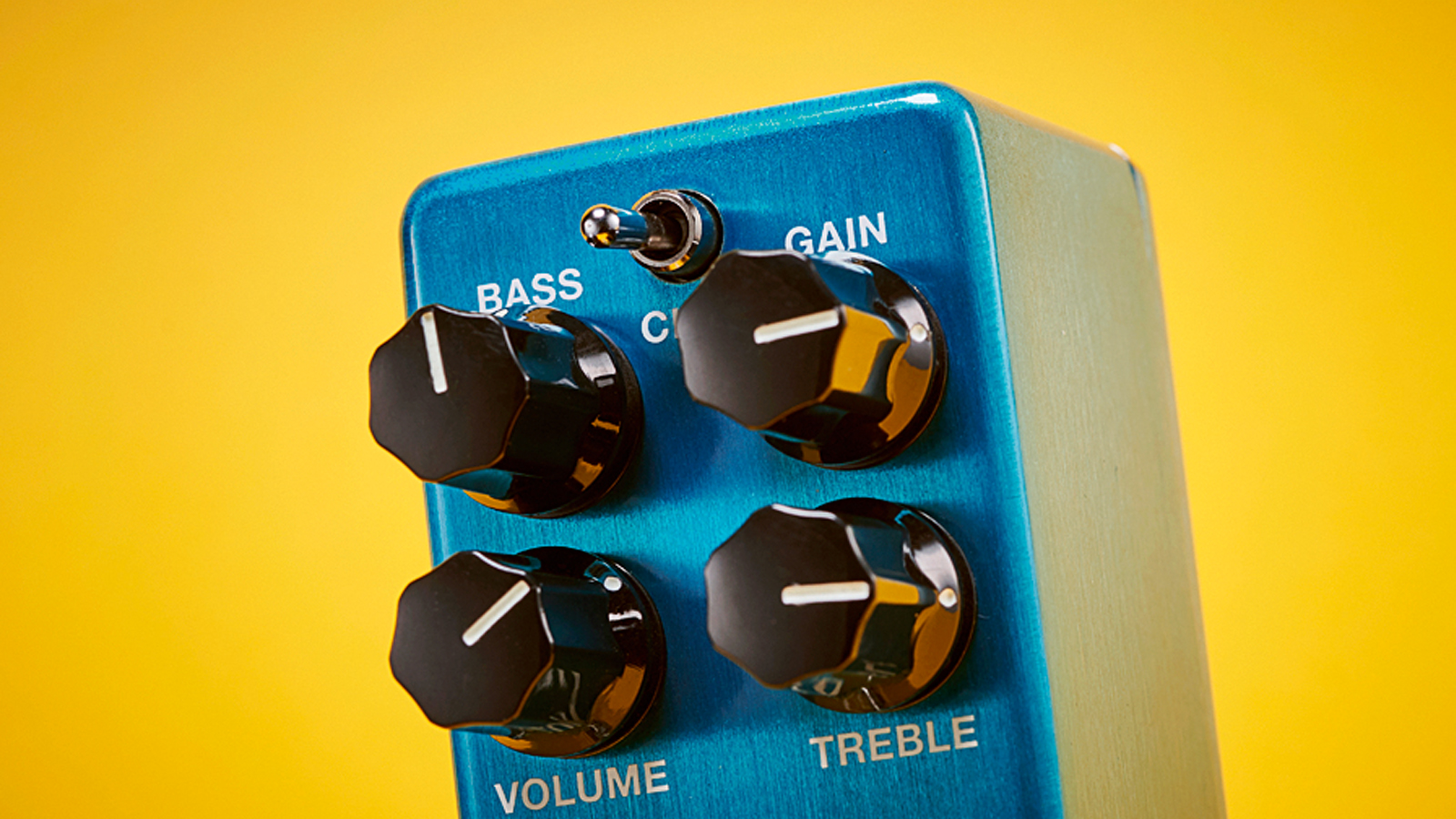
What to know when buying the best overdrive pedals
If you’re looking for the best overdrive pedal for you, then there are a few things to consider beforehand. Firstly, what are you looking to get out of it? Are you looking to use it as a boost for solos? Do you want one as the basis of your main sound? Are you using it to push an already driven amp? Thinking about the application will help you figure out what you need in an overdrive pedal.
What's the difference between overdrive and distortion?
Overdrive and distortion are terms that are (often wrongly) used interchangeably. Granted, they're essentially versions of the same effect - with distortion being overdrive's extreme big brother - but they provide vastly different playing experiences depending on what you go for.
The main difference is that, while a distortion pedal provides the same (or a similar) amount of distortion at any volume, an overdrive pedal reacts more like an old school tube amp - with the amount of gain and grit being dictated not only by the amount of gain you choose, but also by the input and output volume.
What do you want to get from an overdrive?
Whilst overdrives aren’t there to completely change your sound, many do add some tonal qualities that players love, so the inherent sound of it should be considered. Others really let the sound of your guitar and amp shine, so if you’re happy with your tone as it is, but want a bit of extra attitude, then you’ll want to look for an overdrive pedal that’s more transparent.
Some feature more tone-shaping controls than others too. If you have a specific sound in mind, then look for something with more EQ controls, as these will give you more ability to fine-tune your sound. You can also use these to combat troublesome frequencies within your amp, for example, many metal players use a Tube Screamer, or something similar, to push the front end of an already distorted amp a little more, and to tighten up the bottom end. If you’re using an overdrive pedal for solos, then dialling in more high-mids and top-end can help you cut through a live mix better.
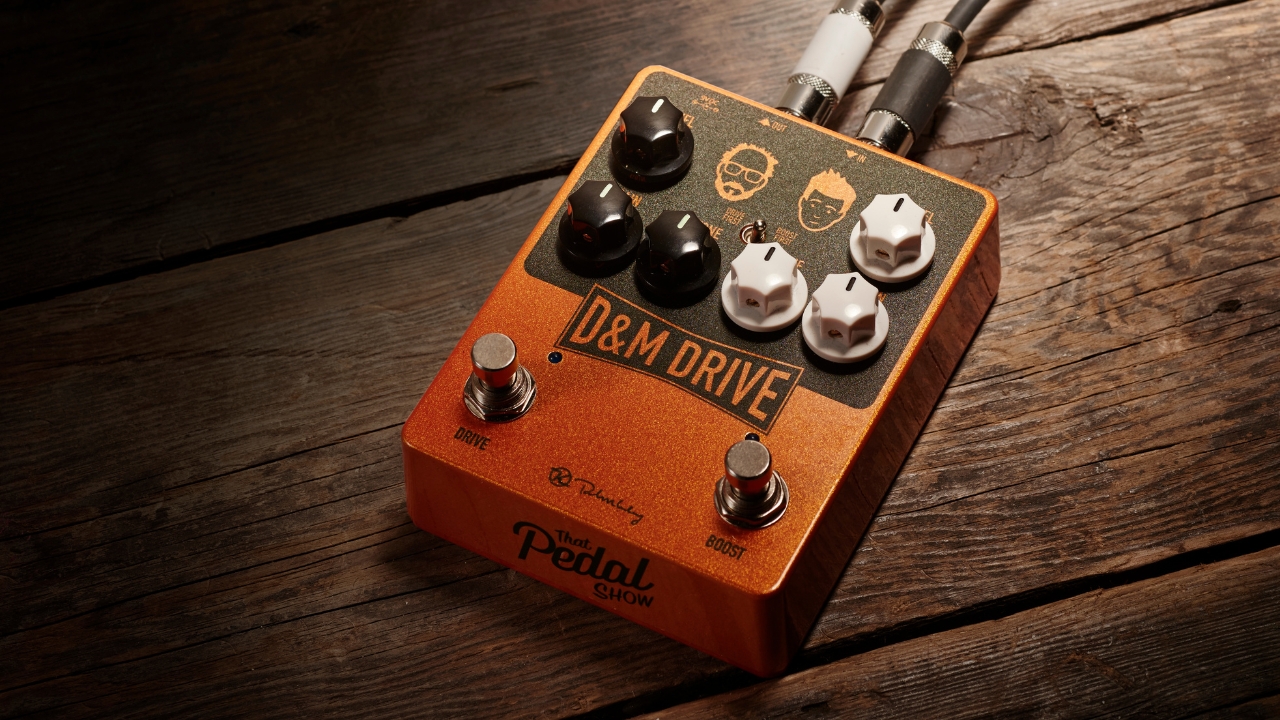
Can I use multiple gain stages or overdrive pedals?
Some of the best overdrive pedals even have different foot-switchable gain stages. These can be really handy if you’re playing live, as they can act almost like extra channels on your amp. Stick it through a clean amp, then have one section of the pedal set to a mild crunch, and the other with more gain - hey presto; you’ve got yourself a three-channel amp that retains your fundamental tone.
Whichever one you opt for, and however you’re using it, an overdrive pedal will give you a bit more of what you’ve already got, with some added grit and volume that can help you play with more feeling and expression.
Stacking multiple overdrive pedals is also a very common move, so if you've got two pedals you love the sound of, or two which tonally compliment each other, then it's worth experimenting with them and seeing what they offer up.
How we choose the best overdrive pedals
When diving into the depths of overdrive pedals, the MusicRadar team leverages a vast pool of real-world experience and expertise to guide you toward the perfect choice for your taste. As devoted musicians, we have clocked extensive hours on stages and in studios across the globe, which forms the bedrock of our recommendations.
We move beyond mere technicalities; we plug in, dial up the gain, and let the pedals tell their stories. This immersive approach enables us to evaluate not just the specs but also the nuanced characteristics that make an overdrive pedal a true ally for musicians. From the ruggedness of the build to the authenticity of the tones, our objective is to encapsulate the essence of each overdrive pedal through the lens of our own playing experiences.
As music enthusiasts, we recognize the pivotal role of finding an overdrive pedal that aligns with your budget, technical requirements, and, most significantly, sparks your artistic inspiration. Our selection process blends technical prowess with an authentic passion for music, ensuring that each recommended overdrive pedal isn't just a piece of gear but a catalyst for sonic exploration.
Find out more about how we test music gear and services at MusicRadar.
Related buying guides
- Our pick of the best distortion pedals for guitar
- Best fuzz pedals: some extra dirt for your guitar tone
- Check out these gifts for guitarists
- Overdrive vs distortion: everything you need to know
- Explore the 10 best reverb pedals available right now
- The best delay pedals from Boss, Strymon and more
- On a tight budget? Here are the best cheap guitar pedals
Want all the hottest music and gear news, reviews, deals, features and more, direct to your inbox? Sign up here.
Chris Corfield is a journalist with over 12 years of experience writing for some of the music world's biggest brands including Orange Amplification, MusicRadar, Guitar World, Total Guitar and Dawsons Music. Chris loves getting nerdy about everything from guitar and bass gear, to synths, microphones, DJ gear and music production hardware.
- Richard Blenkinsop
- Daryl RobertsonSenior Deals Writer
- Matt McCrackenJunior Deals Writer
